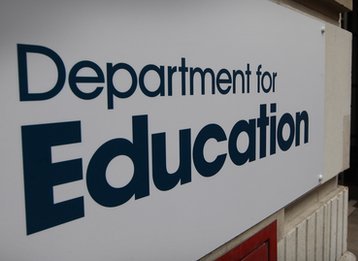Anti-RSE campaigns: guidance is welcome, but schools need more support
Posted: Tue, 15th Oct 2019 by Alastair Lichten
The government has published new guidance for schools facing disruption from religious groups who oppose LGBT-inclusive education. Alastair Lichten welcomes the gesture but says the substance doesn't go far enough.
Teachers must be able to "get on with their jobs without fear of intimidation or harassment", pupils must be allowed to attend "school every day in a calm environment suitable to education", and we should all have confidence that our schools are delivering inclusive accurate education.
These things should go without saying, but the spread of campaigns of misinformation, intimidation and disruption led by reactionary religious opponents of RSE (relationships and sex education) have put these under threat. In particular, over recent months protests outside some primary schools have placed teachers and pupils on the front line of a debilitating culture war.
Since such protests first started, the National Secular Society has been a leading voice calling for guidance to support the schools affected. Last week the Department for Education published such guidance for primary schools. This covers "activity by an individual or group which is disrupting the activities of schools" such as:
- upsetting children
- upsetting staff
- making it difficult for children or staff to get into school
- preventing children or staff getting into school
- loud protests during school hours that are disrupting schools' teaching/activities
- public victimisation of teachers, parents or children in relation to this topic, such as through social media, WhatsApp groups or in-person harassment
- other activity by parents and/or external actors that prevent schools from fulfilling duties and operating as normal.
This anti-RSE movement came as a surprise to many in the education world who have been getting on with inclusive teaching for years. But it certainly didn't come as surprise to the NSS, which has warned for years of the tactics of such groups, before they burst into the mainstream press, and it shouldn't have come as a surprise to the DfE. Even if this guidance wasn't published, there should have been a clear action plan in place for responding to such groups who were always likely to be galvanised by RSE becoming statutory.
Intelligence sharing encountering misinformation
Schools are advised to be aware of signs that could indicate the beginning of a coordinated anti-RSE campaign, including meetings organised by groups such as Stop RSE and Islamic RSE, and to ensure they have the facts to counter such groups' misinformation.
For local authorities, the guidance includes four "next steps" sections for ensuring support to schools. These include organising meetings between primary schools, providing them with shared guidance and template letters. Councils are also advised to issue a joint statement and prepare a coordinated communication plan.
The guidance advises local authorities to provide support such as council officer staff working directly with schools and facilitating communication with parents. This is welcome, but there are no assurances that local authorities will have the resources or experience to do that effectively. Councils and schools should also pass on information to the DfE via rshe.information@education.gov.uk.
Unreasonable expectations
The ill-defined requirement to take pupils' religious background into consideration when delivering RSE has created the unreasonable expectation by some religious parents that they can veto teachings they dislike. Schools already have expertise in cultural sensitivity, so guidance needs to make clear how to stand up to those making unreasonable demands, not give them an impossible balancing act of appeasement versus their legal responsibilities.
Discussion and engagement with parents over concerns are important, but they can't be allowed to lead to equality commitments being watered down to appease hardliners, who are usually self-aggrandising, self-appointed 'community leaders' representing outside organisations rather than actual parents.
When the guidance speaks of "sensationalist coverage that inflames the situation", it's easy to see why some schools have felt pressure from the DfE to get the issue out of the press, even if it means giving in to demands. Of course, the "media are likely to extensively cover any disruptive activity at schools", but the blame for this should not be on schools.
Continued deference to faith leaders
The guidance contains repeated advice to "work with faith leaders" including engaging with the "lead organisers of anti-relationships/LGBT teaching activity". People of all faiths and none can have their say on RSE. But elevating or giving special attention to the views of self-appointed faith leaders reinforces the unreasonable expectation that they should be the gatekeepers of what is acceptable. Another risk this creates is that it elevates faith leaders who hold just as reactionary views as the protesters, but simply disagree with them tactically.
Some progressive faith leaders have called out traditional and reactionary teachings and celebrated inclusive education, and this is great to see. People of all faiths and none have been on the right and the wrong side of history when it comes to LGBT rights. However, the only organised anti-LGBT campaigns have been religiously motivated. We need to be honest about that without fearing putting off religious people. If they're more concerned about pretending homophobia has nothing to do with religion than with tackling it, then they're not really allies in the effort to end it.
The guidance talks of "lessons learned from the first half of 2019". The most important lessons are that appeasement doesn't work, and that schools need support and confidence to communicate their inclusive education. We should be grateful that this guidance has arrived, while recognising that it is only a starting point. Schools will only feel confident confronting these protests when they see that they will be supported.
While you're here
Our news and opinion content is an important part of our campaigns work. Many articles involve a lot of research by our campaigns team. If you value this output, please consider supporting us today.








